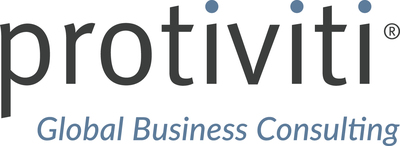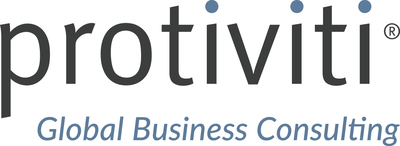
CFOs Prioritize AI, Data Security and Scenario Planning as Tariffs and Global Change Drive FP&A Innovation
MENLO PARK, Calif., Sept. 9, 2025 /PRNewswire/ — For CFOs and finance teams, AI adoption, tariff impacts, and data security and privacy are the top issues they’re confronting as they start planning for 2026, according to the results of global consulting firm Protiviti’s annual Global Finance Trends Survey. They are facing these challenges amid ongoing economic uncertainty, where less than half of CFOs and finance leaders (41%) have a high level of confidence in their organization’s ability to navigate current challenges in the global economy.
Evolving Interest in Artificial Intelligence
According to the survey, the number of finance teams leveraging AI tools has more than doubled in the past year, jumping from 34% in 2024 to 72% in 2025. This surge is a clear indicator of growing interest in AI’s ability to deliver value across various finance functions. The most common applications include:
- Process automation (66%): Streamlining repetitive tasks to improve efficiency and reduce errors.
- Financial forecasting (58%): Leveraging AI to enhance the accuracy and agility of budgeting and planning processes.
- Risk assessment and management (57%): Using advanced analytics to identify, measure, and mitigate financial risks more proactively.
“The data show that CFOs are no longer simply stewards of capital who report the results,” said Christopher Wright, global leader of Protiviti’s CFO Solutions and Business Performance Improvement practice. “They are using scenario planning, AI, and digital modernization to drive innovation, optimize operations, and ensure their organizations are prepared for future challenges—from global price volatility to data governance challenges.”
Tariff Volatility Fuels Strategic Planning and FP&A Investment
Tariffs and evolving trade policies continue to exert significant pressure on financial planning and analysis (FP&A) activities. The survey reveals that 39% of finance leaders believe their FP&A practices need greater attention as a direct result of tariffs. The specific impacts cited by respondents include:
- 64% report at least a moderate impact on financial forecasting capabilities.
- 62% say tariffs are affecting reporting timelines and accuracy.
- 59% indicate overall profitability is being influenced by these external factors.
Instead of undertaking major overhauls to their offshoring models, a majority of organizations (60%), in response to new and changing tariffs, are focusing on strengthening supplier communication, and 52% are enhancing risk management oversight of their suppliers. This reflects a shift toward building resilience through improved collaboration rather than disruptive structural changes. Moreover, FP&A is increasingly recognized as a strategic driver of enterprise value, with finance leaders investing in:
- Driver-based machine learning models: To understand better what factors are influencing performance.
- Predictive and prescriptive analytics: For more informed, forward-looking decision-making.
- Self-service reporting tools: Empowering business users to access data and insights directly.
“As FP&A capabilities mature, CFOs are transforming finance into a strategic engine for the business,” Wright noted. “We’re seeing a clear shift toward integrated, data-driven decision-making where technologies, including AI, help finance teams measure performance across the enterprise and inform business-wide decisions by the C-suite more broadly.”
Technology Enablement and Cyber Risk Require Cross-Functional Leadership
For the second year running, data security and privacy remains the top concern for CFOs and finance leaders—a testament to the critical importance of trust in today’s digital finance environment. AI integration brings fresh opportunities but also new risks, especially in threat detection and data protection.
CFOs are now working more closely than ever with Chief Information Officers (CIOs) and Chief Information Security Officers (CISOs) to modernize technology architecture, strengthen cybersecurity postures, and develop governance frameworks that address operational and reputational risks. This collaboration is critical as regulatory requirements for cybersecurity disclosure continue to evolve.
“With AI reshaping the threat landscape and data privacy, CFOs continue to take anactive role in cybersecurity governance,” Wright added. “They’re not just safeguarding financial data—they’re shaping how organizations secure, govern, and disclose all of the organization’s data in an increasingly complex digital environment.”
Conclusion
CFOs are adapting to rapid change by prioritizing AI adoption, reinforcing data security, and focusing on strategic planning to navigate uncertainty. Their expanded role helps organizations navigate disruptions, seizing growth and innovation opportunities in the digital age.
Survey Resources Available
Key findings of the Protiviti 2025 Finance Trends Survey are available for digital exploration on the firm’s website. The site also offers a complimentary download of the full survey report in PDF format, including recommended action items for CFOs, and an infographic. On Sept. 23, Oct. 16, and Nov. 11, Protiviti will host complimentary 60-minute webcasts to discuss the survey results and their implications. To attend, register here.
About Protiviti
Protiviti (www.protiviti.com) is a global consulting firm that delivers deep expertise, objective insights, a tailored approach and unparalleled collaboration to help leaders confidently face the future. Protiviti and its independent and locally owned member firms provide clients with consulting and managed solutions in finance, technology, operations, data, digital, legal, HR, risk and internal audit through a network of more than 90 offices in over 25 countries.
Named to the Fortune 100 Best Companies to Work For® list for the 11th consecutive year, Protiviti Inc. has served more than 80 percent of Fortune 100 and nearly 80 percent of Fortune 500 companies. The firm also works with government agencies and smaller, growing companies, including those looking to go public. Protiviti Inc. is a wholly owned subsidiary of Robert Half (NYSE: RHI).
View original content to download multimedia:https://www.prnewswire.com/news-releases/cfo-interest-in-ai-in-finance-is-growing-with-the-number-of-finance-organizations-leveraging-ai-more-than-doubling-year-over-year-protivitis-latest-global-finance-trends-survey-finds-302549675.html
SOURCE Protiviti


